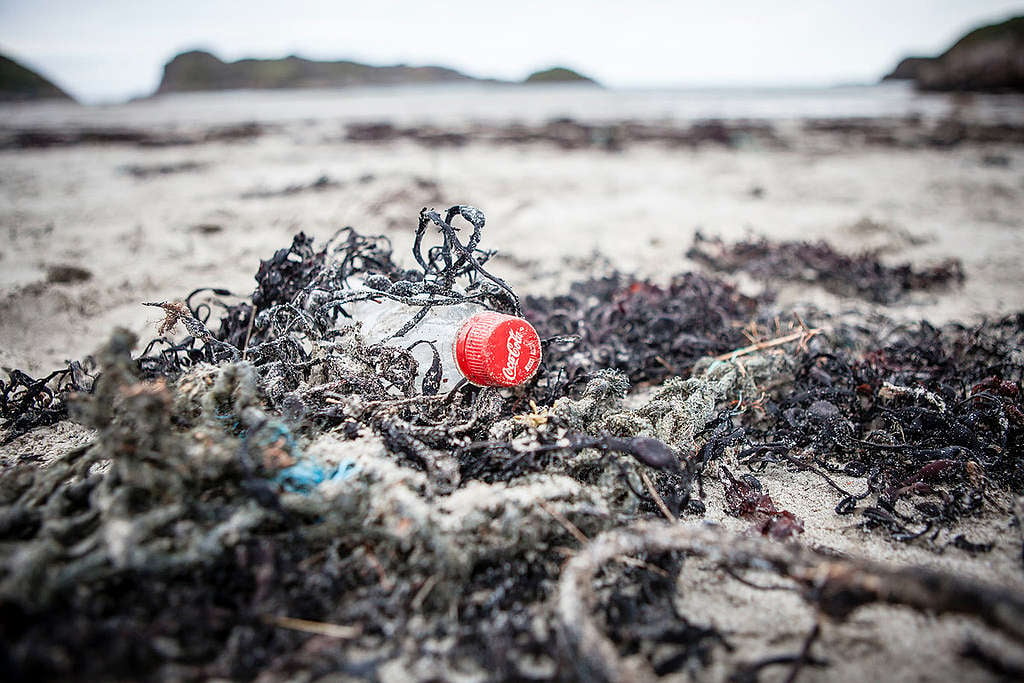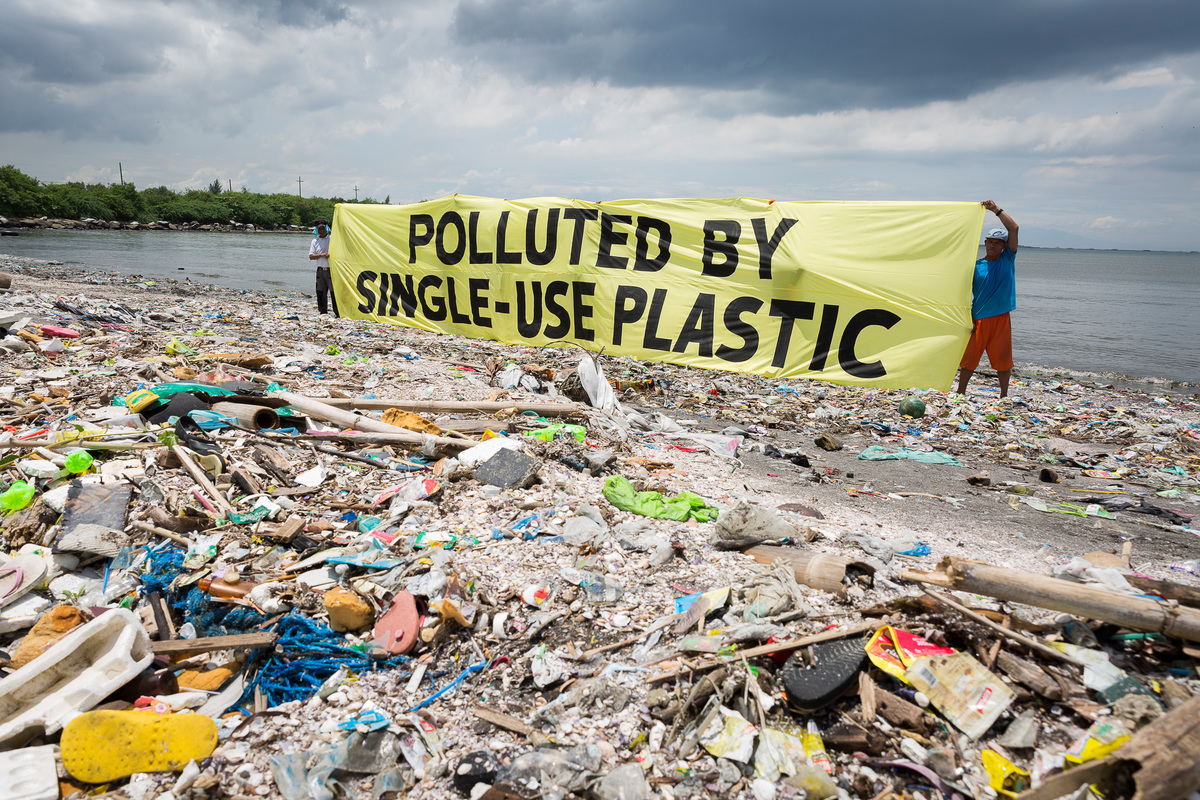Funny isn’t it, seems there’s no such thing as a plastic denier.
Just about nobody on the entire planet is saying, “hey, you know what, let’s do diddly squat about the plastic pollution crisis.”
Even billion dollar corporations who have the most to lose.
That’s probably ‘cause they know that public opinion is so firmly in nature’s corner on this one. 76 per cent of NZers don’t think businesses are doing enough to reduce their environmental impact.
Which might explain why Coca Cola – an arch polluter, pumping out billions of single use plastic bottles annually – made a pact two years ago with well-respected international environmental watchdog – the Ellen MacArthur Foundation.
MacArthur, a famous British yachtie who broke the record for solo world circumnavigation, got motivated to set up the foundation when she saw the extent of plastic in the ocean.
Undoubtedly moved by that shocking statistic which you’ve probably heard before but stands repeating: The equivalent of one dump truck full of plastic is tipped into the seas, every minute.
What Coca Cola (valued at $US 70 Billion) promised – along with 99 other multinationals like Nestle and Pepsi – was to end plastic pollution by creating a “circular economy” – that is a system where plastic packaging is kept in a “closed loop” – with zero plastic ending up in the environment.
One of the key elements of the Foundation’s solution is developing a model where drink bottles and other packaging can simply be reused.
Companies like Coke are usually quite cagey about their plastic footprint. The progress report revealed that Coca Cola produces nearly three million metric tonnes of plastic in 2019.
It’s hard to imagine. Picture 700-800 entire Westpac Trust Stadiums full to the brim with plastic bottles.
Out of all of that three million metric tonnes of plastic packaging how much is reusable?
3%.
That’s what Coke told the EMac Foundation. You know what else they said?
In the section where Coca Cola was asked to describe their planned actions on the reuse of packaging it said “No action planned”.
Same again for the section on plans to reduce or eliminate plastic packaging. “No action planned”.
Want to know what they seemed most proud of according to the report? Changing the colour of Sprite bottles in some countries from “signature green” to clear, so they might be more easily recycled.
Thing is, here and around the world, plastic recycling is something of a myth. It’s a well intentioned idea that’s just not working.
As the EMac Foundation says we can’t recycle our way out of the plastic crisis.
Another stat you’ve probably heard a few times. Again, worth repeating. Only 9 percent of all the plastic ever made in the world has been recycled.
What’s more, companies like Coke know this stuff inside out. It’s their business. Yet they keep pushing the broken down recycling barrow.
Something you might hear Coca Cola crowing about in New Zealand is using recycled plastic pellets to make some of their bottles. The ones smaller than 1litre in size.
This sounds great doesn’t it? However because there are no facilities to turn old coke plastic bottles into new coke plastic bottles here, it just means we import tonnes more of this recycled plastic every year, and no less plastic gets thrown into our environment.
Also listen carefully when Coca Cola talks about “reducing litter” rather than reducing plastic. That’s the sound of a massive corporate blaming everyone else for their pollution.
What they really mean is: “It’s not because we irresponsibly make more than 100 billion plastic single use bottles every year, it’s those jolly litterbugs, our customers, who don’t dispose of them properly.”
We don’t know exactly how many plastic bottles end up in the environment in New Zealand – a conservative guess is tens of millions every year.
Kiwis are sold an estimated one billion single-use plastics drinks bottles a year, with Coca Cola the market leader.
According to NZ research approximately 40 per cent of these bottles end up going into landfill and the ocean.
So what do we do about it?
If corporations are only going to pay lip service to mending their ways then we need Government action on this.
More than 45,000 kiwis have signed a Greenpeace petition asking the Government to ban single use drink bottles. Sign on. Be great to get that total up to 100 grand.
The New Zealand government is currently taking submissions on plans to cut out other single-use plastic items like plastic cutlery and drink stirrers.
The plastic waste minimisation draft proposal doesn’t include plastic bottles.
Here’s a chance for you to get in on the submission process. We’ve done most of the hard work for you. Just get it in before December 5 2020.
That’s the first bit of the solution – cut out the deadwood
Then what we need to do is to nurture the buds of change.
You can browse some of the reusable and refillable alternatives to plastic here in this great little discussion paper by Hannah Blumhardt who’s a bit of a guru on such matters.
With all that covid recovery money jangling around in Grant Robertson’s pocket, and the Labour Government all about “building back better” – let’s invest in some reusables infrastructure.
That could start with regional centres where reusable and refillable containers like glass bottles can be sorted and washed.
A dearth of infrastructure is one of the obstacles to recreating a container deposit scheme like we used to have, where you get ten cents for every bottle returned.
While it is very hard to find plastic denialists, there are definitely those who want to be seen to be doing something, while doing little or nothing at all.
Our job is to make sure Governments and corporations are backing real solutions to the plastic crisis – banning single use bottles, setting up infrastructure for reusables – servicing a genuinely sustainable drinks industry – not just servicing lips.
Ends

Single-use plastic bottles are one of the worst offenders. They are killing precious seabirds like toroa (albatross) and they wind up in landfills or incinerated offshore. Recycling is not working. To get serious about plastic we need to make Coca Cola turn off the plastic tap.
Take Action



